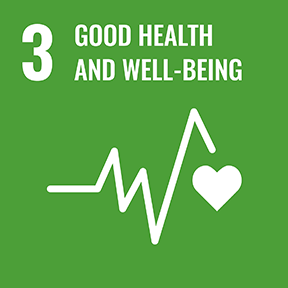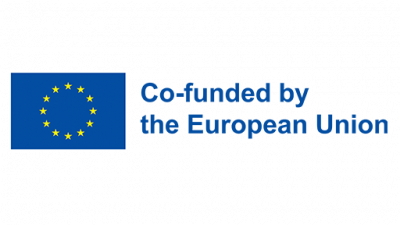Project
TyhyTeko - Work well-being and productivity for tourism and hospitality professionals through artificial intelligence and robotics
Project sponsors
Project type
Focus area
Implementation time
1.9.2024
-
30.6.2027
Project unit
Financing program
European Social Fund Plus (ESF+) 2021-2027
Primary home page
UN Sustainable development goals

Project description
TyhyTeko - Work well-being and productivity for tourism and hospitality professionals through artificial intelligence and robotics
The purpose of the project is to improve the well-being and productivity of professionals (staff, supervisors, and management) in micro and small to medium-sized enterprises (SMEs) in the hospitality industry, as well as to enhance work efficiency through the adoption of artificial intelligence and robotics. In the long term, the project aims to respond to the changing demands of the hospitality industry, renew the sector, and enhance the reputation and attractiveness of an industry suffering from labor shortages.The first company-specific TyhyTeko trials will begin in November 2024, with the next ones following in 2025. Join us! The project aims to involve a total of 152 hospitality industry companies nationwide, with a total of 455 participants (management, supervisors, employees).
Participating companies will receive:
- An understanding of the development areas of their staff's well-being.
- Expert support in planning and implementing a TyhyTeko trial suitable for their situation.
- Skills in adopting and utilizing new technologies, for example, in burdensome and time-consuming work processes.
- A future plan for the next steps in improving well-being and productivity.
- Additionally, the project includes opportunities for peer learning and events between companies.
Project duration: 1.9.2024 - 30.6.2027.
The main implementer of the project is JAMK University of Applied Sciences, with co-implementers including Lapland, Savonia, Seinäjoki, Tampere, and South-Eastern Finland Universities of Applied Sciences. Additionally, the project involves close cooperation with the Finnish Hospitality Association MaRa and the Finnish Restonomes Association.
Contact person: Project Manager Suvi-Tuulia Leinonen, Jamk University of Applied Sciences, [email protected], 0406690645
Project results
TyhyTeko Project is divided into four objectives:
Objective 1: To increase the well-being and productivity of professionals in the hospitality industry by co-developing and implementing artificial intelligence and robotics.
Objective 2: To develop concrete and practically tested tools for SMEs in the hospitality industry to promote well-being and productivity.
Objective 3: To enhance the well-being and productivity of SMEs in the hospitality industry by experimenting with new practices and developed tools.
Objective 4: To disseminate the developed innovative practices for the hospitality industry more widely and to make the voices and experiences of professionals participating in the development work visible.
As a result of the project:
- Co-development methods have been adopted in hospitality industry companies, which can also be utilized after the project.
- The experience of well-being and productivity among hospitality industry professionals has improved.
- Understanding and skills related to artificial intelligence and robotics among hospitality industry professionals have increased.
- Hospitality industry companies participating in company-specific development have networked and learned from each other.
- A draft workbook for hospitality industry companies has been prepared, containing concrete tools to solve the most common challenges in well-being and productivity through the adoption of artificial intelligence and robotics.
- A practically tested and proven workbook for improving well-being and productivity through the adoption of artificial intelligence and robotics has been published for the hospitality industry.
- Hospitality industry companies nationwide have adopted the methods of the prepared workbook for co-development.
- Well-being has improved in hospitality industry companies by utilizing the methods of the workbook.
- Practical experiences and development suggestions have been obtained for further development of the workbook.
- Themes of well-being, productivity, and the utilization of new technologies have been communicated with the voice of hospitality industry professionals.
- Information on increasing well-being and productivity through artificial intelligence and robotics has been disseminated to the hospitality industry.
- The activities and results of the project have been actively communicated.
